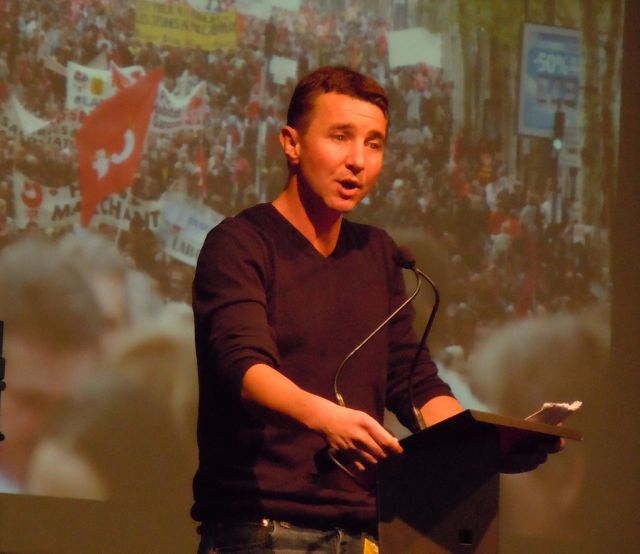
The New Anti-capitalist Party (NPA) held its congress in the Paris suburb of Montreuil over February 11-13.
The congress adopted by a large majority a document, Our Responses to the Crisis, which analyses the multiple crises gripping capitalism: economic, social, food and climate, and outlined a vision of anti-capitalist, ecosocialist politics.
Other motions adopted by majority were a declaration on the international situation, heralding the revolutionary wave in progress in the Arab world; a motion summarising the campaigns against G8/G20; anti-racist campaigns; and the campaign to defend public healthcare and against welfare reform.
The 352 delegates were elected on the basis of four platforms but were not bound to vote in the congress for the platform on which they had been elected. The platforms differed on the orientation of the party and on alliances with other left parties.
Platform 1 said the NPA’s orientation should be broadly anti-capitalist. Platform 2 advocated a more explicitly “revolutionary” orientation.
Platform 3 argued for negotiating with other parties on the left (the Front a Gauche and the Greens) to test out the possibility of an electoral united front. Platform 4 advocated an orientation even more explicitly “revolutionary” than Platform 2.
No platform won a majority. Platform 1 gained 42%; platform 2, 28%; platform 3, 26.4%; platform 4, 3.7%. The national leadership was elected on a proportional basis.
A highlight of the conference was a meeting in solidarity with the unfolding revolutions in North Africa. The meeting was addressed by NPA national spokesperson Olivier Bescancenot; Omar from the French Committee in Solidarity with the people of Egypt; and Tunisian activists Alhem Belhadj from the Ligue de la Gauche Ouvriers (Left Workers’ League) and Adel Thabet of the Communist Workers Party of Tunisia (PCOT). Both the Ligue and the PCOT are members of the January 14 Front in Tunisia.
Belhadj said the movement that overthrew the Ben Ali regime was spontaneous at first, but trade unions quickly got involved. The movement, made possible by the young and unemployed, contained a great lesson: revolution is possible, she said.
Thabet stressed that the revolutions in Tunisia and Egypt would be felt throughout the Arab world and beyond.
A joint statement by the NPA and the foreign parties represented at the congress (from 27 countries) expressing solidarity with the Arab uprisings, was adopted.
The most contentious issue debated was over whether NPA candidates should be allowed to wear a hijab headscarf.
Many of the foreign representatives were surprised this could be such a big issue at a socialist conference. But in France, the political tradition of militant secularism has meant that the divisive politics of banning items of religious clothing has had an influence even over the political left.
When Ilham Moussaid, who wears a hijab scarf, ran as a candidate for the NPA in the 2010 regional elections, the party was criticised by other left parties as well as the right.
Moussaid left the NPA in response to a position being advanced inside the party that wearing a hijab headscarf is incompatible with being a feminist and advocating a ban on running hijab-wearing candidates. At the congress a motion to this effect was defeated, but by just two votes, resulting in dissatisfaction on all sides.
To work through the issue, the NPA will hold a special conference.